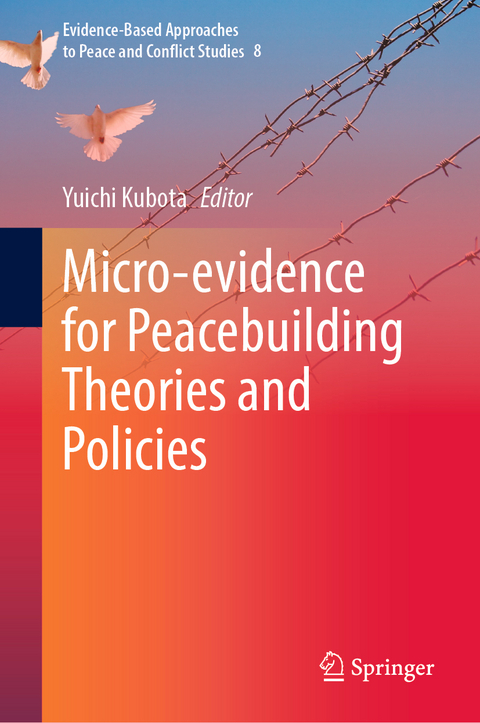
Micro-evidence for Peacebuilding Theories and Policies
Springer Verlag, Singapore
978-981-19-4762-9 (ISBN)
Once it occurs, civil conflict brings enormous suffering on the local society.
Relying on micro-evidence on the repercussions of civil conflicts, this edited book explores theories and policies of post-conflict peacebuilding. Reconsidering existing knowledge on the civil conflict and peacebuilding processes in particular, it empirically presents the relationships between conflict dynamics and citizens’ norms, values, and preferences in the post-conflict context.
Once it occurs, civil conflict brings enormous suffering on the local society. As a consequence of wartime coercion and violence that tear it apart, citizens come to harbor fear, distrust, and hatred of others, especially of those who are in different sociopolitical groups. This can significantly alter the pre-conflict norms and values of the citizenry and make reconciliation difficult across groups in the aftermath of the conflict.
To tackle these problems, post-conflict peacebuilding should be well designed so that it can widely cover and sufficiently deal with conflict-affected citizens. This approach urges us to pay serious attention to the individual-level impact of the conflict process and dynamics. The importance of micro-level analysis does not disregard that of normative and/or macro-level approaches to the development of peacebuilding policies. However, the micro-level approach is better able to capture wartime civil–military relations that largely vary between individuals.
The book is aimed at linking academic knowledge with policy development in peacebuilding. To reflect existing policy frameworks in peacebuilding, the implications of micro-evidence-based studies for conflict-affected societies are discussed here. A bottom-up approach pursued throughout this book allows us to elaborate desirable policy schemes for peacebuilding that conform to local contexts.
Yuichi Kubota is Associate Professor at Department of Political Science and Economics, College of Law, Nihon University in Tokyo. His research interests include civil conflict, peacebuilding, public opinion, and political economy of development in Asia. He is the author of Armed Groups in Cambodian Civil War: Territorial Control, Rivalry, and Recruitment (Palgrave Macmillan, 2013). He has published articles on civil-military relations in armed conflict, patterns of political violence, and sociopolitical attitude of civilians in post-conflict societies in journals such as Asian Survey, International Studies Review, Journal of Peace Research, Security Studies, World Development. He received his Ph.D. in political science from University at Albany (State University of New York).
Introduction: Empirics for Peacebuilding.- In the Eye of the Peacebuilder: International and Local Perceptions of Peacebuilding.- Success and Failure in Kosovo and Timor-Leste.- Resilience against Everyday Disillusion: Voices for Peacebuilding in Bosnia and Herzegovina.- Wartime Violence, Risk/Time Preferences, and Post-conflict Sociopolitical Participation: Evidence from Northwestern Pakistan.- Micro-Evidence from Participatory Conflict Analysis: Toward Context-Specific and Adaptive Peacebuilding in Mozambique.- Conclusion: Theoretical and Policy Implications.
| Erscheinungsdatum | 03.12.2022 |
|---|---|
| Reihe/Serie | Evidence-Based Approaches to Peace and Conflict Studies ; 8 |
| Zusatzinfo | 4 Illustrations, color; 7 Illustrations, black and white; VIII, 120 p. 11 illus., 4 illus. in color. |
| Verlagsort | Singapore |
| Sprache | englisch |
| Maße | 155 x 235 mm |
| Themenwelt | Sozialwissenschaften ► Politik / Verwaltung ► Europäische / Internationale Politik |
| Sozialwissenschaften ► Politik / Verwaltung ► Vergleichende Politikwissenschaften | |
| ISBN-10 | 981-19-4762-7 / 9811947627 |
| ISBN-13 | 978-981-19-4762-9 / 9789811947629 |
| Zustand | Neuware |
| Haben Sie eine Frage zum Produkt? |
aus dem Bereich


